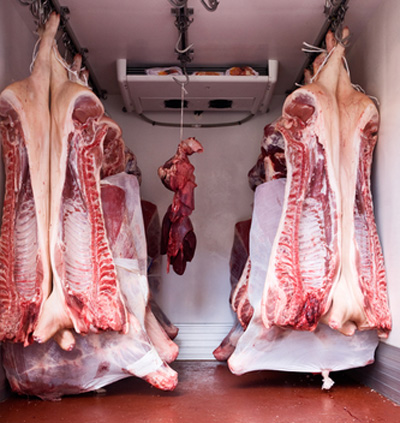EFSA assesses the impact of time and temperature on meat spoilage
- Like
- Digg
- Del
- Tumblr
- VKontakte
- Buffer
- Love This
- Odnoklassniki
- Meneame
- Blogger
- Amazon
- Yahoo Mail
- Gmail
- AOL
- Newsvine
- HackerNews
- Evernote
- MySpace
- Mail.ru
- Viadeo
- Line
- Comments
- Yummly
- SMS
- Viber
- Telegram
- Subscribe
- Skype
- Facebook Messenger
- Kakao
- LiveJournal
- Yammer
- Edgar
- Fintel
- Mix
- Instapaper
- Copy Link
Posted: 30 June 2016 | Victoria White, Digital Content Producer | No comments yet
EFSA has assessed the impact of time and temperature on the growth of spoilage bacteria in fresh beef, pork, lamb and poultry…


The European Food Safety Authory (EFSA) has assessed the impact of time and temperature on the growth of spoilage bacteria in fresh beef, pork, lamb and poultry.


To do so, EFSA experts used predictive models to compare the growth of spoilage bacteria with the growth of disease-causing (pathogenic) bacteria and concluded that spoilage bacteria grow faster under the same conditions.
EFSA had previously advised on the implications for meat safety if these two parameters – time and temperature – varied and provided several scenarios for ensuring safety of meat during storage and transport of meat. The Commission subsequently asked EFSA to consider what implications such scenarios would have for the growth of bacteria that cause meat to spoil.
“If the sole consideration was safety, policy makers would have more options on the table to pick from. However, scenarios that are acceptable in terms of safety may not be acceptable in terms of quality,” said Dr. Marta Hugas, Head of EFSA’s Biological Hazards and Contaminants unit.
Legislation requires carcasses to be chilled to no more than 7C
Current legislation requires that carcasses are chilled to no more than 7C and that this temperature is maintained until mincing. The European Commission wants to revise this legislation to provide industry with more flexibility and asked EFSA’s scientific advice on safety and quality aspects.
Experts also said that effective hygienic measures during slaughter and processing help control contamination with spoilage bacteria.
You can read EFSA’s Scientific Opinion here.







